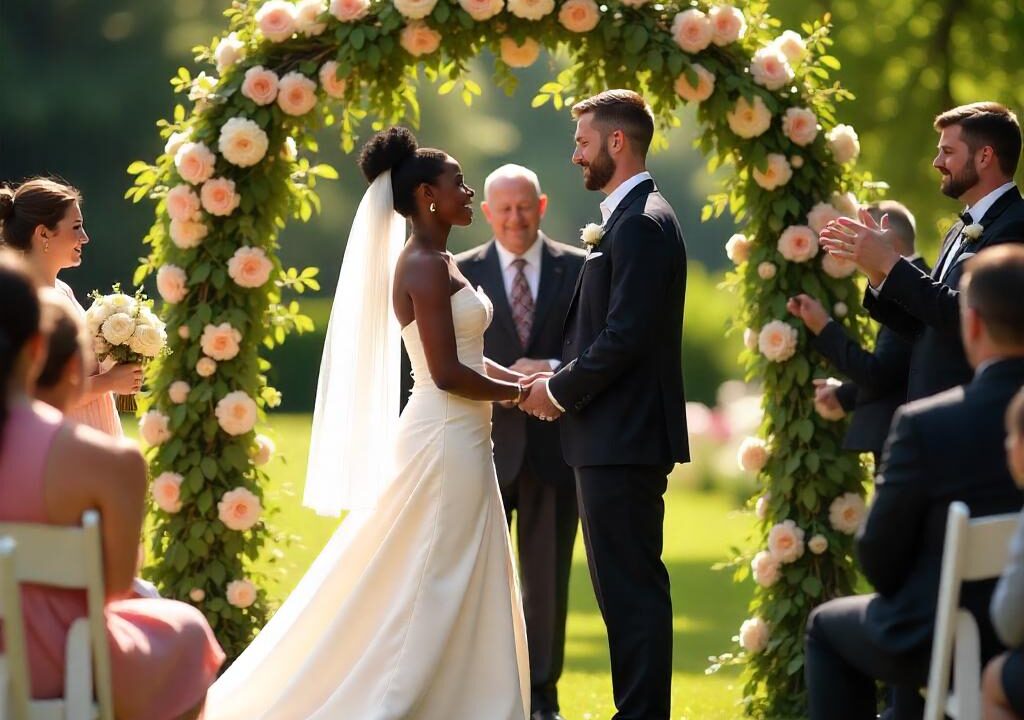Marriage to a citizen or permanent resident of another country can open the door to permanent residency (PR), offering legal status, work rights, and eventually, a pathway to citizenship. However, obtaining PR through marriage is far from automatic.It involves a detailed application process, documentation, interviews, and often a period of conditional residence to prove the authenticity of the relationship.
If you’re planning to apply for PR through marriage, here’s what you should know about eligibility, the application process, potential challenges, and the expectations set by immigration authorities.
Understanding PR Through Marriage
Permanent Residency (PR) through marriage refers to a foreign national acquiring legal resident status in their spouse’s country, either as a sponsored spouse of a citizen or permanent resident. This status allows the individual to live, work, and study legally, with many of the same rights as citizens (except voting or holding certain public office positions).
This route is commonly used in countries like:
-
United States (Green Card through Marriage)
-
Canada (Spousal Sponsorship under Family Class)
-
United Kingdom (Spouse Visa leading to Indefinite Leave to Remain)
-
Australia (Partner Visa leading to PR)
Each country has unique rules and timelines, but the general framework is similar.
If you need more explanation or more information, you can book a consultation and speak to Happy Face
Eligibility Requirements
To apply for PR through marriage, both the sponsor (the citizen or permanent resident) and the applicant (the foreign spouse) must meet several criteria:
1. Legally Valid Marriage
-
The marriage must be recognized under the laws of both countries.
-
Same-sex marriages are accepted in many countries where legal.
2. Proof of Genuine Relationship
Immigration authorities look for evidence that the relationship is real and not entered into solely for immigration purposes. Common documentation includes:
-
Joint bank accounts
-
Lease agreements or property deeds
-
Travel history together
-
Photos, communication records, and social media interactions
-
Birth certificates of children (if applicable)
-
Letters from friends and family confirming the relationship
3. Sponsor’s Eligibility
The sponsoring spouse must:
-
Be a citizen or PR of the country
-
Meet income requirements (to prove they can support the spouse)
-
Not have sponsored someone else recently (in some cases)
-
Not be convicted of certain crimes, especially those involving domestic violence or immigration fraud
4. Admissibility of the Applicant
The foreign spouse must:
-
Not have a serious criminal record
-
Be medically fit (some countries require medical exams)
-
Not have overstayed a visa or violated immigration laws (in certain countries, waivers may apply)
If you need more explanation or more information, you can book a consultation and speak to Happy Face
The Application Process: General Steps
While exact steps vary by country, the typical process involves:
1. Submit Sponsorship and PR Application
Usually done together. In some countries, the applicant can apply from outside or inside the country, depending on their current immigration status.
2. Pay Application Fees
This can include sponsorship fees, processing fees, and biometric collection fees.
3. Provide Biometrics and Medical Exams
Biometric data (fingerprints, photos) and medical reports may be required.
4. Attend an Interview (if required)
Some applicants may be called for a marriage interview to assess the legitimacy of the relationship. Questions may be detailed and personal.
5. Wait for a Decision
Processing times can range from 6 months to 2 years depending on the country, application complexity, and whether the application was submitted from inside or outside the country.
Conditional Residency and Follow-Ups
Some countries grant conditional or temporary residency for a period (e.g., 2 years in the U.S.), after which the couple must submit additional evidence of a continuing genuine relationship.
If the marriage ends prematurely—through separation or divorce—during this conditional period, the foreign spouse may lose their PR status unless they qualify for a waiver (e.g., due to abuse, good faith marriage, or extreme hardship).
If you need more explanation or more information, you can book a consultation and speak to Happy Face
Common Challenges and Red Flags
Immigration authorities are cautious about marriage fraud, which makes thorough documentation and honest responses essential. Common red flags include:
-
Large age differences
-
Different languages or religious backgrounds with no cultural overlap
-
Short time between meeting and marriage
-
Inconsistent answers during interviews
-
Lack of cohabitation or joint financial ties
Such factors don’t necessarily disqualify an application but often lead to closer scrutiny.








